
International community is witnessing lately a number of disguised initiatives in the European Parliament for promoting the Armenian views on Nagorno Karabakh region and the fictious regime in the said region which is even not recognized even by Armenia itself. The events organized in the context of these initiatives in the premises of the European Parliament seem to be individually hosted or co-hosted by the members of the European Parliament. However, the announcements and advertisements concerning the events clearly indicate that in reality the mental and financial owners of the initiatives are Armenian front groups organized as NGOs in Europe and especially in Belgium. One of the latest example of such events is the announcements placed in the website of the European Friends of Armenia (EuFoA).[1]
Per the announcement, the Armenian General Benevolent Union (AGBU) Europe and the European Friends of Armenia (EuFoA) are extending invitation to an event hosted by European Parliament member Frank Engel on February 28th in the European Parliament Room JAN 6Q2 from 13h00 to 15h00 with the title “Nagorno-Karabakh&EU 1988-2018. Taking stock of 30 years of EU policy on the Nagorno-Karabakh conflict”. It is claimed in the announcement that in the event, “building on the European Parliament’s institutional memory of the conflict and on the resolutions it adopted between 1988 and 1994, two panels of parliamentarians, diplomats and international experts will critically assess the EU’s current policies on the conflict and discuss some suggestions on how to rebuild confidence and promote peace-building actions among the peoples of Armenia, Azerbaijan and Nagorno-Karabakh”. Announcement further claims that the “event is intended to encourage the European institutions to become more pro-active in their contribution to conflict resolution and human rights in the region.”[2]
It should be noted in this respect that Mr. Frank Engel is a member of the European Parliament from Luxembourg. He is a member of the Christian Social People's Party of which is part of the European People's Party. As it can be easily understood from their titles, EuFoA and AGBU Europe are Armenian front groups based in Brussels.[3]
In fact, European Parliament’s official position vis-a-vis the Nagorno Karabakh region is clearly stated in its certain resolutions. One of the important document in this regard is the resolution P7-TA (2013)0446 adopted on 23 October 2013 with the title “The European Neighbourhood Policy: towards a strengthening of the partnership: EP’s position on the 2012 reports”.[4] The paragraph 16 of the said resolution stresses that “the occupation by one country of the Eastern Partnership of the territory of another violates the fundamental principles and objectives of the Eastern Partnership and that the resolution of the Nagorno-Karabakh conflict should comply with UN Security Council resolutions 822, 853, 874 and 884 of 1993”. It is well known fact that the said UN Security Council Resolutions reaffirm the sovereignty and territorial integrity of the Azerbaijani Republic and of all other States in the region. UNSC resolution 884 “calls upon the Government of Armenia to use its influence to achieve compliance by the Armenians of the Nagorny Karabakh region of the Azerbaijani Republic with resolutions 822 (1993), 853 (1993) and 874 (1993)”. It should be also mentioned that European Parliament resolution of 9 July 2015 on the review of the European Neighbourhood Policy refers to its previous resolution adopted in 2013, and underlines that “respect for the territorial integrity of sovereign states is a fundamental principle of relations between countries in the European neighbourhood and the occupation of a territory of one country by another is inadmissible”.[5]
Above mentioned European Parliament resolutions indicate that European Parliament basically follows the provisions of the relevant UN Security Council resolutions and considers that the Nagorno Karabakh region is an integral part of the Republic of Azerbaijan. It also regards the occupation by one country of the Eastern Partnership the territory of another as violation of the fundamental principles and objectives of the Eastern Partnership, and the UN Security Council resolutions. Accordingly, officially it bars any representation or presence under the roof of the EU with the pseudonym of “Artsakh”.
In fact, it should be underlined that there exists examples that the European Union respected Azerbaijan’s territorial integrity and the law, and did not allow provocations to be made over Nagorno-Karabakh. For example, on 18-19 October, the European Armenian Federation for Justice and Democracy organized the 4th European Armenian Convention in Brussels. The second day of the Convention was held in the building of the European Parliament, and was hosted by three members of the European Parliament (two from Greece and one from the Greek Administration of Southern Cyprus). At the mentioned second day of the Convention organized in the European Parliament building, the leader and the officials of “the Nagorno-Karabakh Republic” were not permitted to enter the building and join the event.[6]
It seems that certain Armenian front groups nowadays, through the instrumentality of their cohorts in the European Parliament, are trying to abrade this clear position of the European Parliament on the Nagorno Karabakh, and are trying to fishing for new fait accompli methods. This intention is easily noticeable in the announced title and explanatory notes of the event planned for 28th February 2018. While the title of “Nagorno-Karabakh&EU 1988-2018” draws the attention to a certain time frame goes back to the ex-Soviet Union and tries to remind the state structures of Soviet Republics in that period, the explanatory notes of the event bring to the fore certain resolutions adopted by the European Parliament during the 1990s. These are the resolutions on the situation in Armenia which also includes the references to Nagorno Karabakh.[7] As it is mentioned in the explanatory notes of the aforesaid announcement, “two panels of parliamentarians, diplomats and international experts will critically assess the EU’s current policies” in the event. All these indicate that Armenian front groups are trying to put pressure on the European Parliament for changing its position on Nagorno Karabakh region which is in line with the UN Security Council resolutions.
There is no doubt that disguised initiatives now being implemented under the roof of the European Parliament with the unfortunate collaboration of certain members of the Parliament cannot make a positive contribution to the peaceful settlement of the Nagorno-Karabakh conflict. On the contrary, such actions run the high risk of further reducing the influence and respectability of European Parliament and inevitably of the EU in general in the region.
*Photo: http://agbueurope.org
[1] “Welcome To European Friends Of Armenia,” Europan Friends of Armenia, 2018, http://eufoa.org/.
[2] “Conference Nagorno-Karabakh & The Eu: 1988-2018 - 28/02,” Europan Friends of Armenia, 2018, http://armencom.be/fr/ev%C3%A9nements/1521-conference-nagorno-karabakh-the-eu-1988-2018-28-02.
[3] “The Armenian General Benevolent Union in Europe” (The Armenian General Benevolent Union, March 17, 2015), http://agbueurope.org/wp-content/uploads/sites/17/2015/03/AGBU-8-pages-V17.pdf.
[4] “European Neighbourhood Policy, Working towards a Stronger Partnership: EP’s Position on the 2012 Progress Reports” (European Union, April 21, 2016), http://www.europarl.europa.eu/sides/getDoc.do?type=TA&reference=P7-TA-2013-0446&language=EN.
[5] “Review of the European Neighbourhood Policy” (European Union, June 27, 2017), P8_TA(2015) 0 272, http://www.europarl.europa.eu/sides/getDoc.do?pubRef=-//EP//TEXT+TA+P8-TA-2015-0272+0+DOC+XML+V0//EN; “Adopted by the Security Council at Its 3313th Meeting , on 12 November 1993” (United Nations, December 11, 1993), S/RES/884 (1993), http://www.un.org/en/ga/search/view_doc.asp?symbol=S/RES/884(1993)&referer=http://www.un.org/en/sc/documents/resolutions/1993.shtml&Lang=E.
[6] AVİM, “Extreme Armenian Natıonalist Discourse Permitted In Belgium And Germany,” Center For Eurasian Studies (AVİM) 2017, no. 81 (January 11, 2017).
[7] “Resolution on the Situation in Armenia” (Official Journal of the European Union, December 9, 1988), No C 38/82, http://karabakhfacts.com/wp-content/uploads/2013/12/c_03819900219en00620129.pdf; “Resolution on the Situation in Armenia” (Official Journal of the European Communities, March 13, 1990), Doc. B3-556/90, http://karabakhfacts.com/wp-content/uploads/2013/12/c_09619900417en01370325.pdf.
© 2009-2025 Center for Eurasian Studies (AVİM) All Rights Reserved
No comments yet.
-
 EU'S FAILURE TO FULFILL ITS HUMAN RIGHTS RESPONSIBILITIES: STATEMENT BY THE EU SPECIAL REPRESENTATIVE FOR HUMAN RIGHTS AT THE UN
EU'S FAILURE TO FULFILL ITS HUMAN RIGHTS RESPONSIBILITIES: STATEMENT BY THE EU SPECIAL REPRESENTATIVE FOR HUMAN RIGHTS AT THE UN
Teoman Ertuğrul TULUN 18.10.2022 -
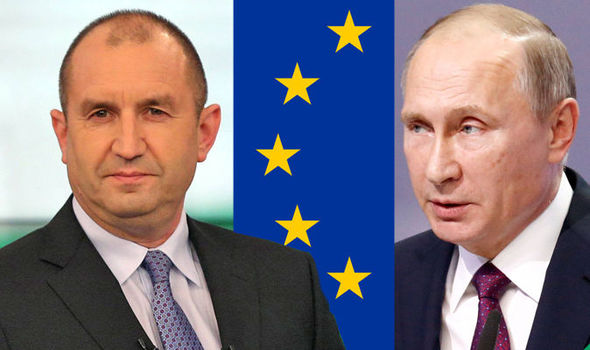 EUROPEAN UNION’S DISCRIMINATORY APPROACH TO THE BALKANS AND THE RISE OF SLAV-ORTHODOX DOMINANCE IN THE REGION
EUROPEAN UNION’S DISCRIMINATORY APPROACH TO THE BALKANS AND THE RISE OF SLAV-ORTHODOX DOMINANCE IN THE REGION
Teoman Ertuğrul TULUN 24.04.2017 -
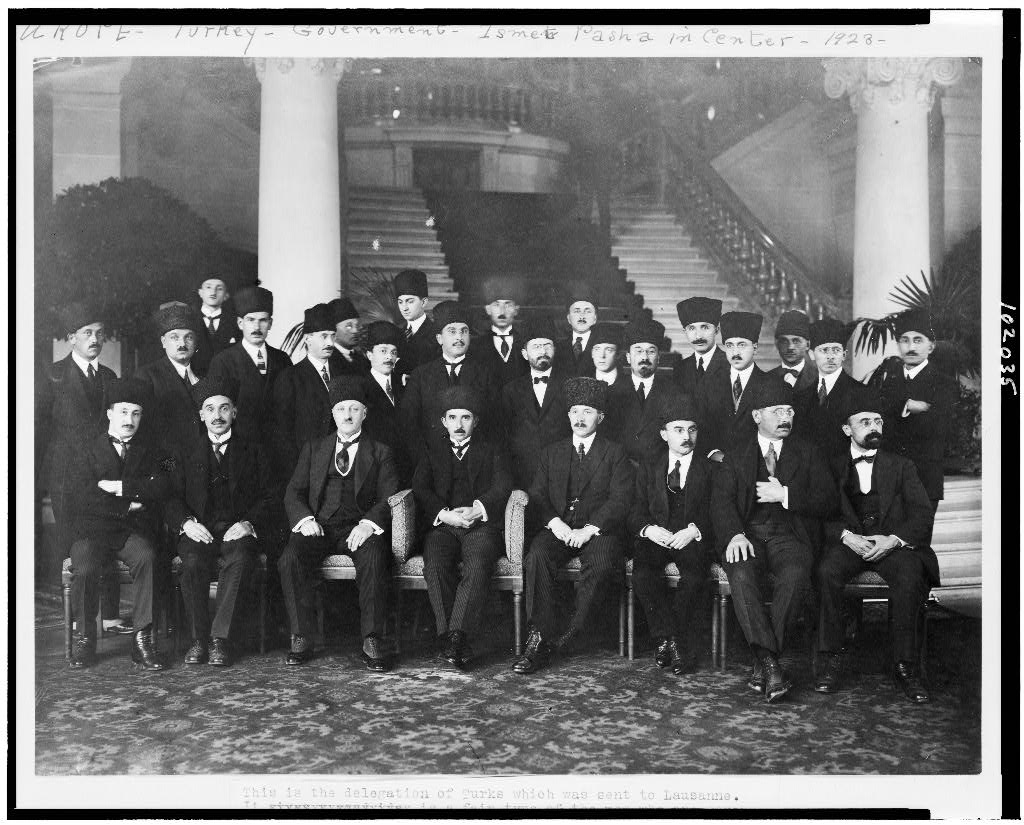 PEACE TREATY OF LAUSANNE AND THE END TO ARMENIAN ASPIRATIONS
PEACE TREATY OF LAUSANNE AND THE END TO ARMENIAN ASPIRATIONS
Teoman Ertuğrul TULUN 22.07.2016 -
 HUNGARY'S PARTICIPATION IN THE COOPERATION COUNCIL OF TURKIC-SPEAKING STATES
HUNGARY'S PARTICIPATION IN THE COOPERATION COUNCIL OF TURKIC-SPEAKING STATES
Teoman Ertuğrul TULUN 12.09.2018 -
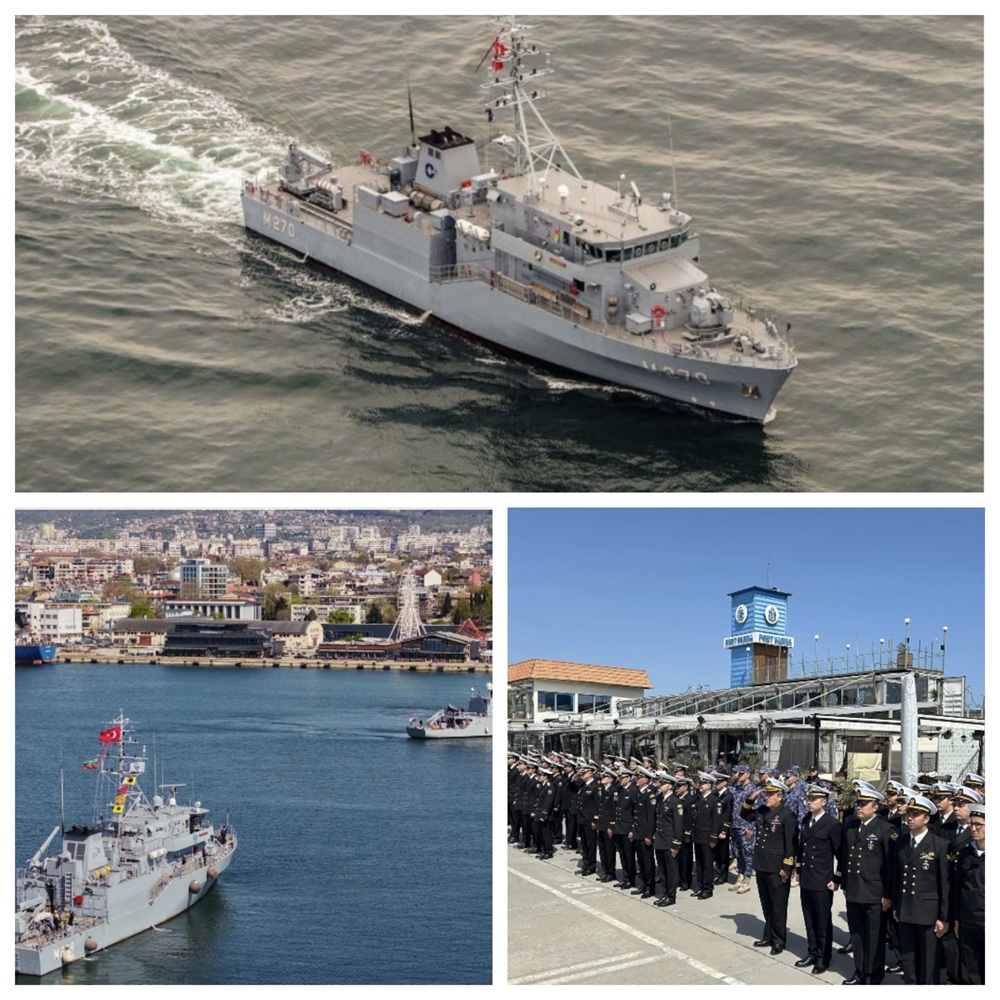 GUARDIANSHIP IN PRACTICE: LEADERSHIP, ADAPTATION, AND SECURITY CHALLENGES IN THE BLACK SEA
GUARDIANSHIP IN PRACTICE: LEADERSHIP, ADAPTATION, AND SECURITY CHALLENGES IN THE BLACK SEA
Teoman Ertuğrul TULUN 16.10.2025
-
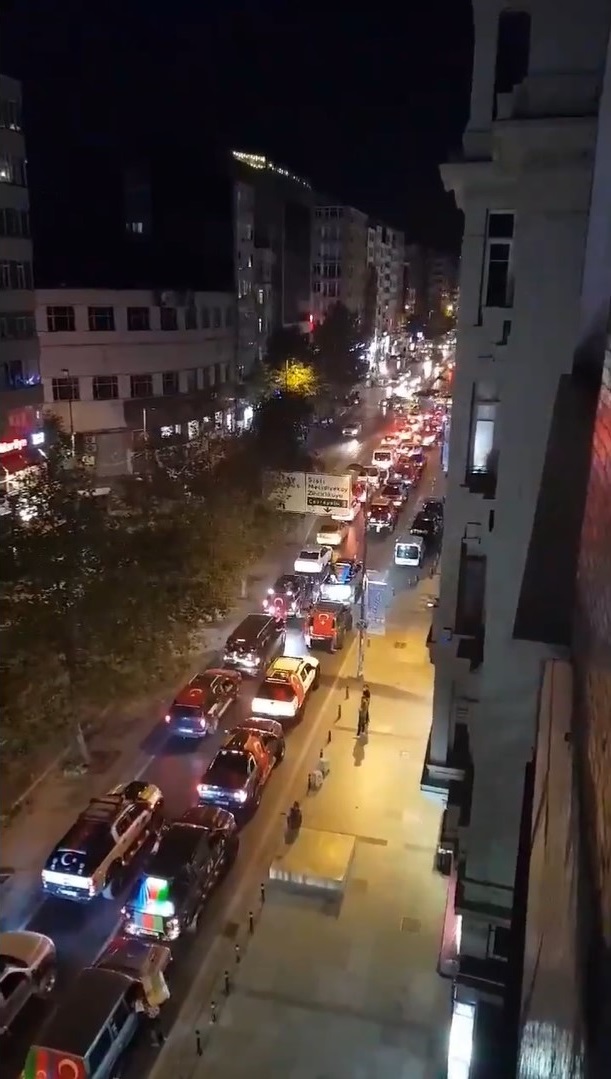 FRANCE 24-THE OBSERVERS PROGRAMME AND FAKE NEWS
FRANCE 24-THE OBSERVERS PROGRAMME AND FAKE NEWS
Mehmet Oğuzhan TULUN 20.10.2020 -
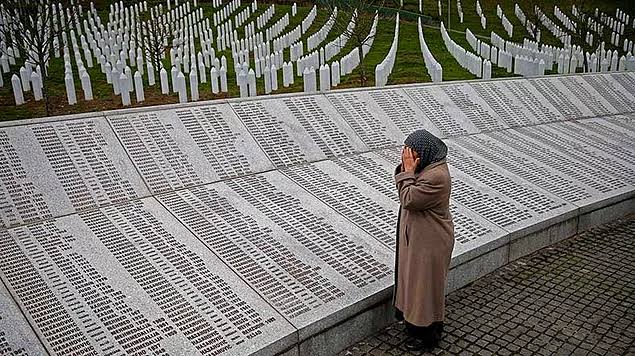 THE DEEP WOUND OF THE BOSNIAK NATION, BALKANS, AND EUROPE: THE SREBRENICA GENOCIDE
THE DEEP WOUND OF THE BOSNIAK NATION, BALKANS, AND EUROPE: THE SREBRENICA GENOCIDE
Teoman Ertuğrul TULUN 16.07.2019 -
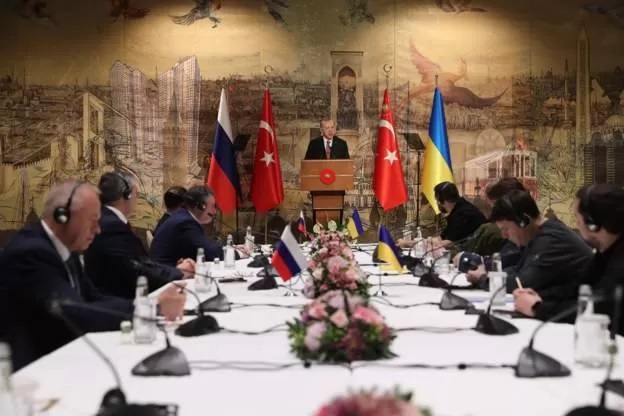 GEARS OF DIPLOMACY: TURKEY JOINING THE EQUATION
GEARS OF DIPLOMACY: TURKEY JOINING THE EQUATION
Gözde KILIÇ YAŞIN 16.05.2022 -
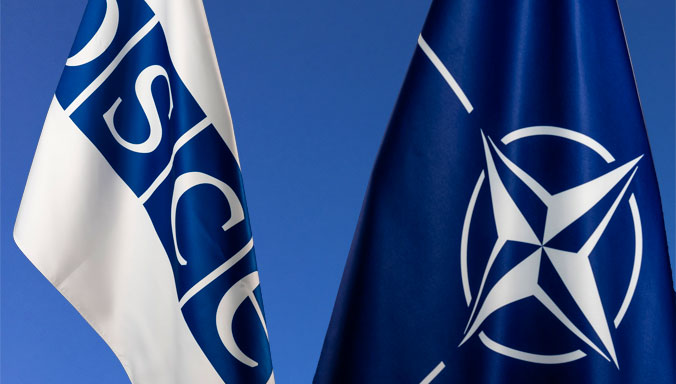 NATO IS NOT BRAIN-DEAD: HOW CAN OSCE AND NATO HELP STOP THE WAR IN UKRAINE?
NATO IS NOT BRAIN-DEAD: HOW CAN OSCE AND NATO HELP STOP THE WAR IN UKRAINE?
Teoman Ertuğrul TULUN 08.03.2022 -
 SHIFTING PARADIGMS: ELECTION INTERFERENCE AND DEMOCRATIC INTEGRITY IN THE OSCE REGION
SHIFTING PARADIGMS: ELECTION INTERFERENCE AND DEMOCRATIC INTEGRITY IN THE OSCE REGION
Teoman Ertuğrul TULUN 24.01.2025
-
25.01.2016
THE ARMENIAN QUESTION - BASIC KNOWLEDGE AND DOCUMENTATION -
12.06.2024
THE TRUTH WILL OUT -
27.03.2023
RADİKAL ERMENİ UNSURLARCA GERÇEKLEŞTİRİLEN MEZALİMLER VE VANDALİZM -
17.03.2023
PATRIOTISM PERVERTED -
23.02.2023
MEN ARE LIKE THAT -
03.02.2023
BAKÜ-TİFLİS-CEYHAN BORU HATTININ YAŞANAN TARİHİ -
16.12.2022
INTERNATIONAL SCHOLARS ON THE EVENTS OF 1915 -
07.12.2022
FAKE PHOTOS AND THE ARMENIAN PROPAGANDA -
07.12.2022
ERMENİ PROPAGANDASI VE SAHTE RESİMLER -
01.01.2022
A Letter From Japan - Strategically Mum: The Silence of the Armenians -
01.01.2022
Japonya'dan Bir Mektup - Stratejik Suskunluk: Ermenilerin Sessizliği -
03.06.2020
Anastas Mikoyan: Confessions of an Armenian Bolshevik -
08.04.2020
Sovyet Sonrası Ukrayna’da Devlet, Toplum ve Siyaset - Değişen Dinamikler, Dönüşen Kimlikler -
12.06.2018
Ermeni Sorunuyla İlgili İngiliz Belgeleri (1912-1923) - British Documents on Armenian Question (1912-1923) -
02.12.2016
Turkish-Russian Academics: A Historical Study on the Caucasus -
01.07.2016
Gürcistan'daki Müslüman Topluluklar: Azınlık Hakları, Kimlik, Siyaset -
10.03.2016
Armenian Diaspora: Diaspora, State and the Imagination of the Republic of Armenia -
24.01.2016
ERMENİ SORUNU - TEMEL BİLGİ VE BELGELER (2. BASKI)
-
AVİM Conference Hall 24.01.2023
CONFERENCE TITLED “HUNGARY’S PERSPECTIVES ON THE TURKIC WORLD"









